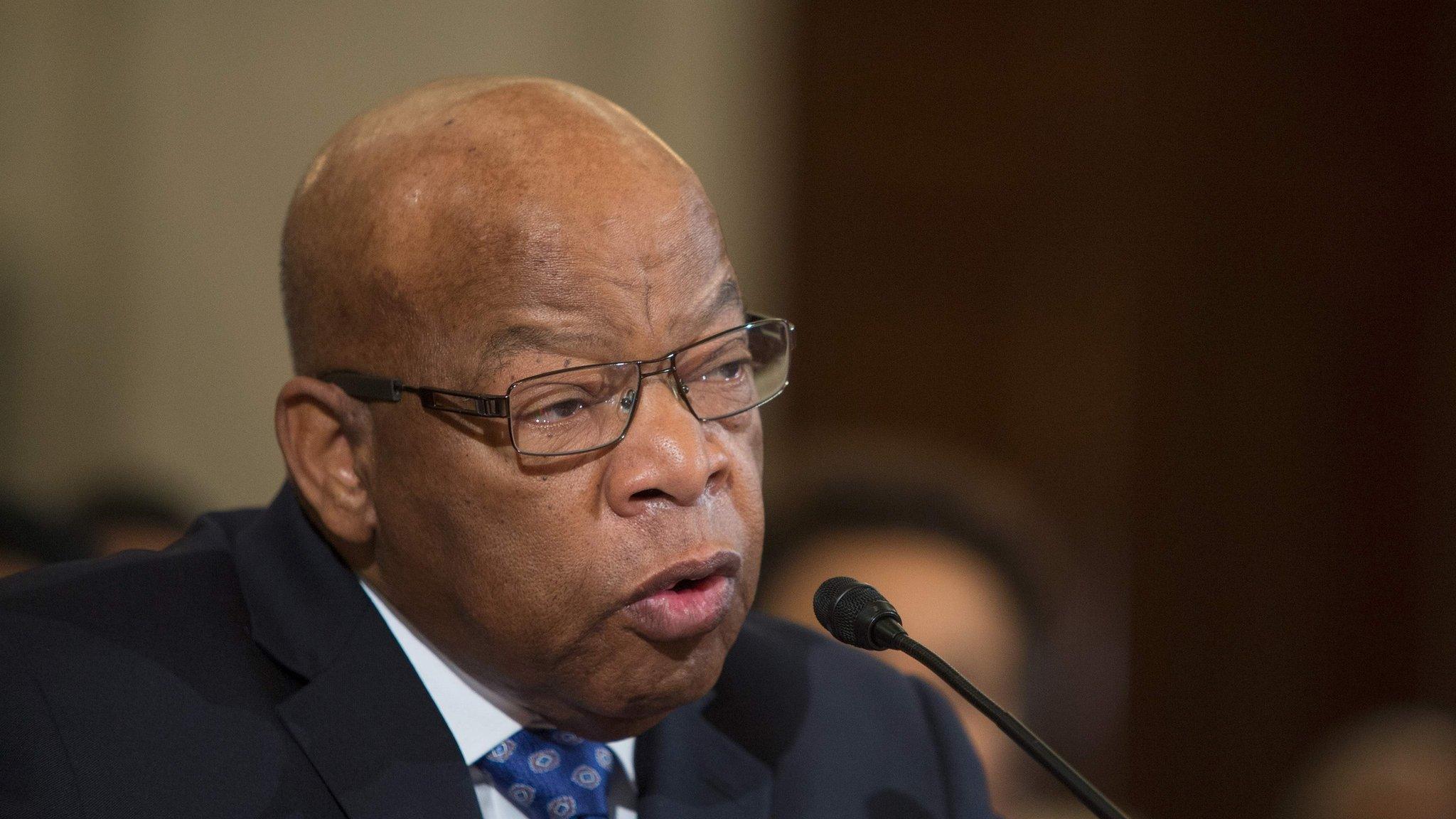Civil rights icon John Lewis diagnosed with pancreatic cancer
- Published
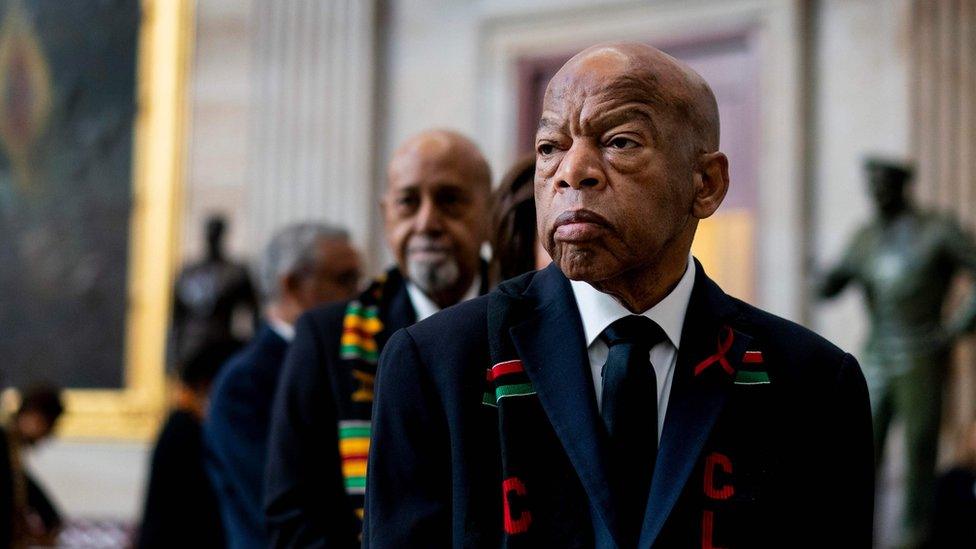
Congressman John Lewis is known as a civil rights hero
Democratic congressman and civil rights icon John Lewis has been diagnosed with stage four pancreatic cancer.
Mr Lewis, 79, said in a statement that he was diagnosed with the advanced cancer after a "routine medical visit".
He said he would continue to work while receiving treatment, but added that he "may miss a few votes".
"I have been in some kind of fight - for freedom, equality, basic human rights - for nearly my entire life," his statement said.
"I have never faced a fight quite like the one I have now."
Mr Lewis joined Congress in 1987, representing a Georgia district that includes almost 75% of the city of Atlanta and some affluent suburbs.
But he is best known as a leading figure in the civil rights movement.
Congressman John Lewis: "We were beaten, tear gassed, some of us were left bloody here on this bridge. But we never became bitter or hostile."
Mr Lewis is the last surviving speaker from the August 1963 March on Washington, at which Martin Luther King Jr gave his "I have a dream" speech.
He also took part in the Freedom Rides - a protest against segregated bus terminals in the South.
And in March 1965, he led a march in Selma, Alabama that infamously ended in a violent attack by state troopers on protesters. Mr Lewis suffered a fractured skull.
Remembering that march 50 years later, in 2015, he said in a speech delivered in Selma: "This city, on the banks of the Alabama river, gave birth to a movement that changed this nation forever.
"Our country would never ever be the same, because of what happened on this bridge."
Rows with President Donald Trump
Mr Lewis was one of a group of Democratic politicians to boycott Mr Trump's inauguration in 2017, saying he believed his election win was illegitimate.
In response, Mr Trump tweeted that Mr Lewis was "all talk", and said he should "spend more time on fixing and helping his district, which is in horrible shape and falling apart (not to mention crime-infested)".
Earlier this year, Mr Lewis delivered an emotional speech condemning President Trump for posting tweets widely seen as racist about four Democratic congresswomen of colour.
"I know racism when I see it. I know racism when I feel it. And at the highest level of government, there's no room for racism," he said.
"It sows the seeds of violence and destroys the hopes and dreams of people.
"The world is watching. They are shocked and dismayed because it seems we have lost our way as a nation, as a proud and great people."
- Published23 June 2016
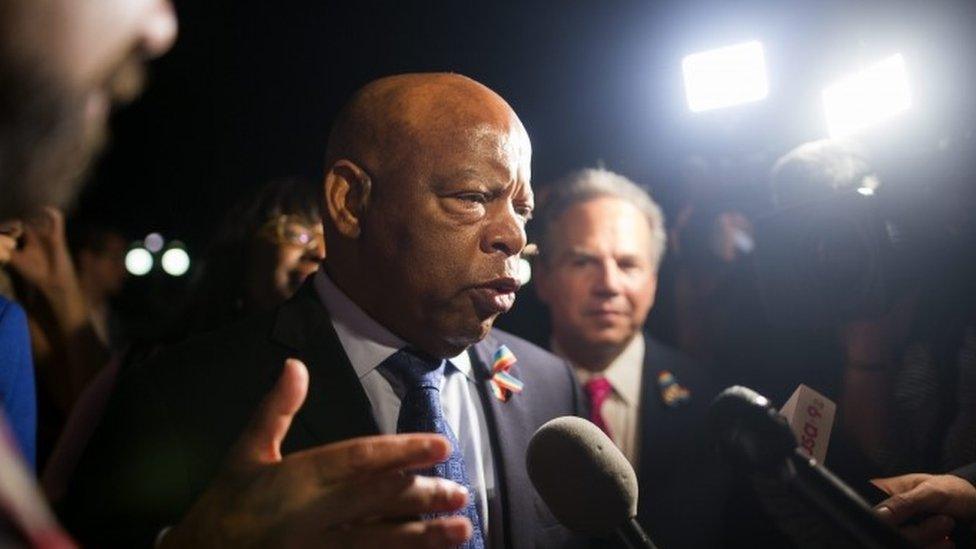
- Published7 March 2015
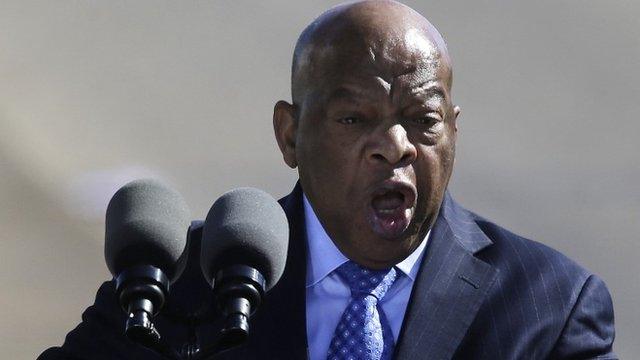
- Published16 January 2017
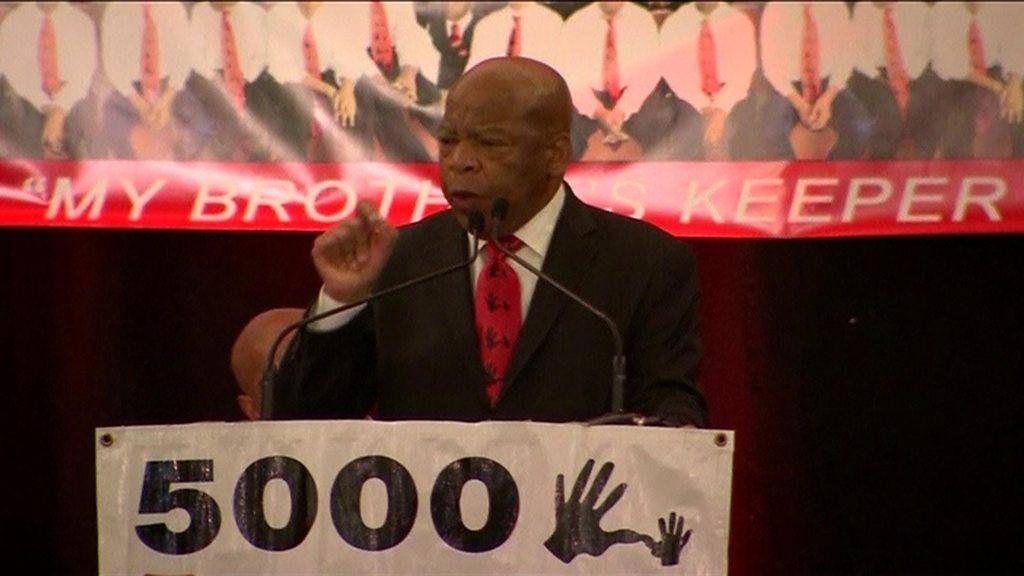
- Published14 January 2017
